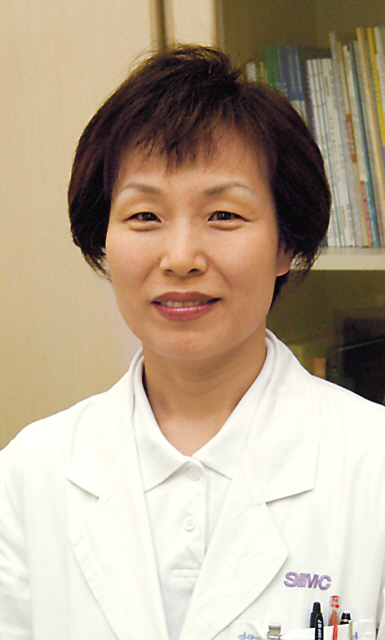 |
Illustration by Park Gee-young |
A low-sodium diet is one with a limited amount of salt taken in with food.
The sodium component in salt is a risk factor for high blood pressure, edema, kidney diseases and cardiac disease, as sodium is a mineral that draws in and retains moisture, affecting the balance of body fluids. In this case, reducing the intake of salt helps to control blood pressure, ease edema, and reduce stress on the heart.
How to follow a low-salt diet
1. Things to be aware of when choosing food: On a preferential basis, limit salty food. Avoid taking too much of the following foods as they have high salt content.
(1) Salty food, various types of salted fish, various types of “jangajji” (pickled vegetables), salt-pickled fish etc.
(2) Processed food: canned goods, ham, sausage, cheese, butter, biscuits.
(3) Others: soup and broth, artificial flavor enhancers etc.
2. Ways to enjoy food without much salt
(1) Reduce salt in cooking and add flavor to the food with seasonings that contain no salt. ― sugar, vinegar, lemon juice, ginger, pepper, mustard, spring onion, garlic, sesame seed, and curry powder.
(2) Use cooking methods that will give a strong salty taste to the food.
● Do not use salty flavors on food while cooking, but just before eating
● Only salt one or two different types of food intensively.
● Cook to spare the fresh taste of the food. Enjoy its fresh and natural flavor.
● Use visual stimulation by giving the food an appetizing color.
3. Things to remember when dining out
(1) While ordering food, request the food to be cooked with no salt (or other sauces and seasoning). E.g. food such as fried rice or “seolleongtang” (stock soup of bone and stew meat).
(2) Avoid fast food, instant food or processed food. E.g. food such as black-bean sauce noodles and pizza.
(3) Reduce intake of broth (stock).
(4) When having soup, flavor by adding ground pepper and spring onion before eating, rather than salt.
 |
Cho Young-yun |
By Cho Young-yun
The author is director of dietetics at Samsung Medical Center. ― Ed.






![[Exclusive] Hyundai Mobis eyes closer ties with BYD](http://res.heraldm.com/phpwas/restmb_idxmake.php?idx=644&simg=/content/image/2024/11/25/20241125050044_0.jpg)

![[Herald Review] 'Gangnam B-Side' combines social realism with masterful suspense, performance](http://res.heraldm.com/phpwas/restmb_idxmake.php?idx=644&simg=/content/image/2024/11/25/20241125050072_0.jpg)
